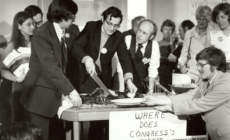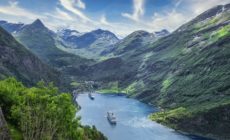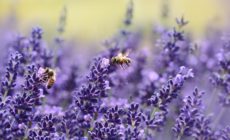Yesterday, the Biden-Harris administration released a 6-point policy framework for reducing US imports of products tied to deforestation. Friends of the Earth US commends the outgoing Administration's delivery of this framework and guidance on the direction of the US government’s commitment to halt and reverse global deforestation by 2030.
Imports of seven forest risk commodities have exposed the United States to tropical and…

Brent Blackwelder, a longtime environmentalist and self-avowed “tree hugger” who prodded politicians for decades, has died. He was 80.

Even though JPMorgan Chase has made pledges to “responsibly invest” & support racial equity, it is the largest US financier of the plastics industry.

Port communities and wildlife are at risk because of the dangers of cruise ships. These floating cities are a toxic nightmare for everyone and everything in their path.

Without pollinators, grocery stores would run short of a wide assortment of fruits and vegetables, nuts, beans, and delicious favorites like chocolate and coffee.

Americans should demand that Facebook take a few simple steps to show they are serious about combatting disinformation.

A new scorecard from Friends of the Earth shows that top food retailers are failing to protect bees and people from toxic pesticides.

As California moves to slash greenhouse gases dramatically by 2030, and schools in San Francisco and elsewhere look to reduce their carbon emissions, a key ingredient is missing from the conversation: meat.
